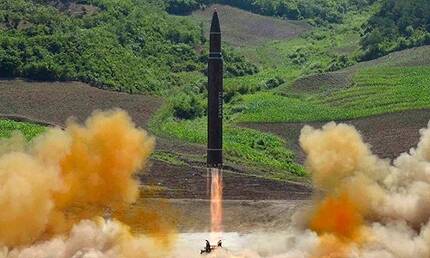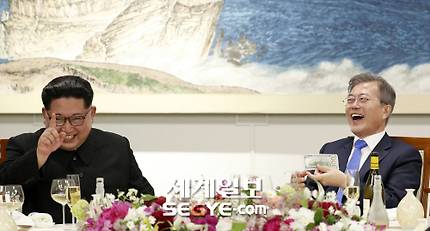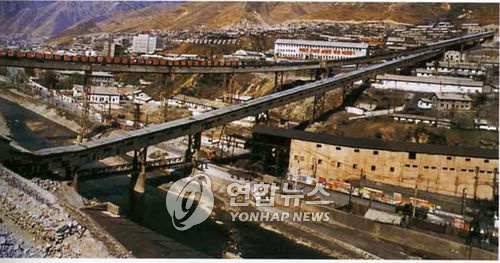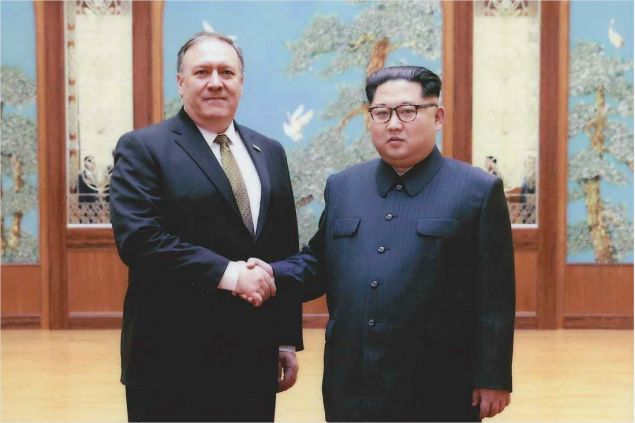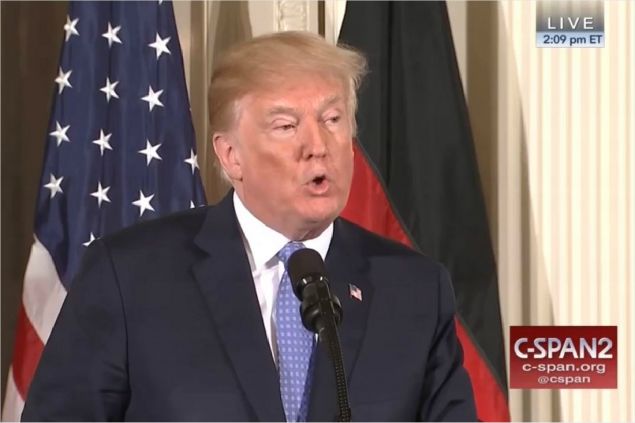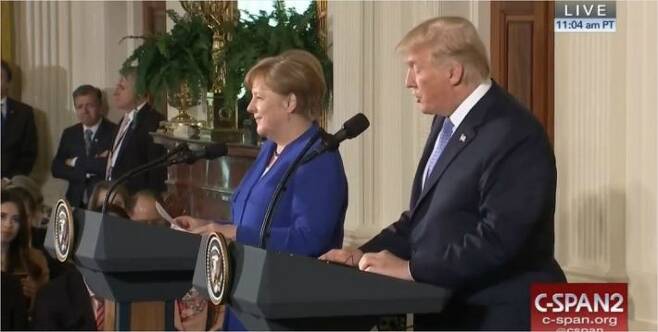Ongoing peace gestures involving North Korea could have positive impacts on South Korea's equity markets, though global woes would limit their upward momentum, a global investment bank said Friday.
Marking the culmination of a series of inter-Korean reconciliation moves in recent months, the historic inter-Korean summit between South Korean President Moon Jae-in and North Korean leader Kim Jong-un is now underway at the border truce village of Panmunjom.
"It seems markets are beginning to price in possible 'peace dividends,' albeit modestly for now," Goldman Sachs said in its latest report.
Pointing to gains in construction, steel and machinery, which are related to infrastructure development for inter-Korea economic integration, the bank said geopolitical factors seem to "have still played a role in several sectors."
But overall markets have shown relatively muted reactions to the recent risk-easing events, Goldman Sachs pointed out, citing limited gains by the local stock market, the fall in the dollar-won skew and the decrease in the Korean sovereign five-year credit default swap premium since early March.
Despite a modest positive impact on local equity markets since the announcement of the inter-Korea summit, "experience suggests that global factors are likely to dominate Korean markets," the report said, pointing to pressures from rising US rates and trade frictions between the United States and China.
The international bank, however, expressed guarded optimism by saying that geopolitical factors "could play a bigger role, helping support Korean equities and Korean won, once market concerns over trade tension and sharp rises in bond yields fade."
South Korea's valuation relative to other emerging economies rose ahead of previous summits, though the valuation gains did not seem to have lasted long after the event, Goldman Sachs noted.
Given the planned summit between the US and North Korea and a possible Seoul-Washington summit in the first half of this year, any gains in Korean won and equity markets fueled by an inter-Korean summit "might be sustained in the near term, or gain further momentum," the bank said.
Global investment bank Morgan Stanley's South Korean operation also made an assessment about the impact of easing geopolitical risks on the Korean economy, laying out four scenarios on the heels of the inter-Korean summit: Breaking the ice; Becoming more engaged; Full union; and Uneasy equilibrium.
In the "breaking the ice" scenario, inter-Korean relations would be improved and some economic ties re-established, with the main KOSPI market rising as much as 8 percent, Morgan Stanley said.
If things get even better, the rival Koreas could "becoming more engaged," where the communist country liberalizes trade and the movement of people, or "full union," where the two Koreas become one in terms of economy and policy.
"We believe the market could strongly re-rate and possibly overshoot our expectations. We assume 10-15 percent upside to KOSPI," the bank said.
Citing the market responses to the fall of the Berlin Wall back in 1989, Morgan Stanly, however, warned of chances of overreaction.
Following the collapse of the Berlin Wall, the equity market rallied for some two months, boosting the DAX index 28 percent, but stocks sharply tumbled afterwards, and similar patterns could happen with the main Korean bourse, according to Morgan Stanley.
"They have a tendency to exhibit sharp rallies on major catalysts without properly incorporating the risks and impediments into the measurement ... An event like the resolution of geopolitical risk related to North Korea could be such a catalyst," it noted.
On Friday, the main KOSPI index rose a solid 0.68 percent to end at 2,492.4 points as investors cheered ample signs of thawing inter-Korean relations. The two leaders are still holding their talks, and they are planning to have a welcome dinner later in the day, accompanied by their first ladies.(Yonhap)
Marking the culmination of a series of inter-Korean reconciliation moves in recent months, the historic inter-Korean summit between South Korean President Moon Jae-in and North Korean leader Kim Jong-un is now underway at the border truce village of Panmunjom.
"It seems markets are beginning to price in possible 'peace dividends,' albeit modestly for now," Goldman Sachs said in its latest report.
| (Yonhap) |
Pointing to gains in construction, steel and machinery, which are related to infrastructure development for inter-Korea economic integration, the bank said geopolitical factors seem to "have still played a role in several sectors."
But overall markets have shown relatively muted reactions to the recent risk-easing events, Goldman Sachs pointed out, citing limited gains by the local stock market, the fall in the dollar-won skew and the decrease in the Korean sovereign five-year credit default swap premium since early March.
Despite a modest positive impact on local equity markets since the announcement of the inter-Korea summit, "experience suggests that global factors are likely to dominate Korean markets," the report said, pointing to pressures from rising US rates and trade frictions between the United States and China.
The international bank, however, expressed guarded optimism by saying that geopolitical factors "could play a bigger role, helping support Korean equities and Korean won, once market concerns over trade tension and sharp rises in bond yields fade."
South Korea's valuation relative to other emerging economies rose ahead of previous summits, though the valuation gains did not seem to have lasted long after the event, Goldman Sachs noted.
Given the planned summit between the US and North Korea and a possible Seoul-Washington summit in the first half of this year, any gains in Korean won and equity markets fueled by an inter-Korean summit "might be sustained in the near term, or gain further momentum," the bank said.
Global investment bank Morgan Stanley's South Korean operation also made an assessment about the impact of easing geopolitical risks on the Korean economy, laying out four scenarios on the heels of the inter-Korean summit: Breaking the ice; Becoming more engaged; Full union; and Uneasy equilibrium.
In the "breaking the ice" scenario, inter-Korean relations would be improved and some economic ties re-established, with the main KOSPI market rising as much as 8 percent, Morgan Stanley said.
If things get even better, the rival Koreas could "becoming more engaged," where the communist country liberalizes trade and the movement of people, or "full union," where the two Koreas become one in terms of economy and policy.
"We believe the market could strongly re-rate and possibly overshoot our expectations. We assume 10-15 percent upside to KOSPI," the bank said.
Citing the market responses to the fall of the Berlin Wall back in 1989, Morgan Stanly, however, warned of chances of overreaction.
Following the collapse of the Berlin Wall, the equity market rallied for some two months, boosting the DAX index 28 percent, but stocks sharply tumbled afterwards, and similar patterns could happen with the main Korean bourse, according to Morgan Stanley.
"They have a tendency to exhibit sharp rallies on major catalysts without properly incorporating the risks and impediments into the measurement ... An event like the resolution of geopolitical risk related to North Korea could be such a catalyst," it noted.
On Friday, the main KOSPI index rose a solid 0.68 percent to end at 2,492.4 points as investors cheered ample signs of thawing inter-Korean relations. The two leaders are still holding their talks, and they are planning to have a welcome dinner later in the day, accompanied by their first ladies.(Yonhap)










